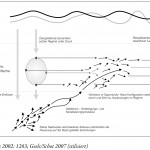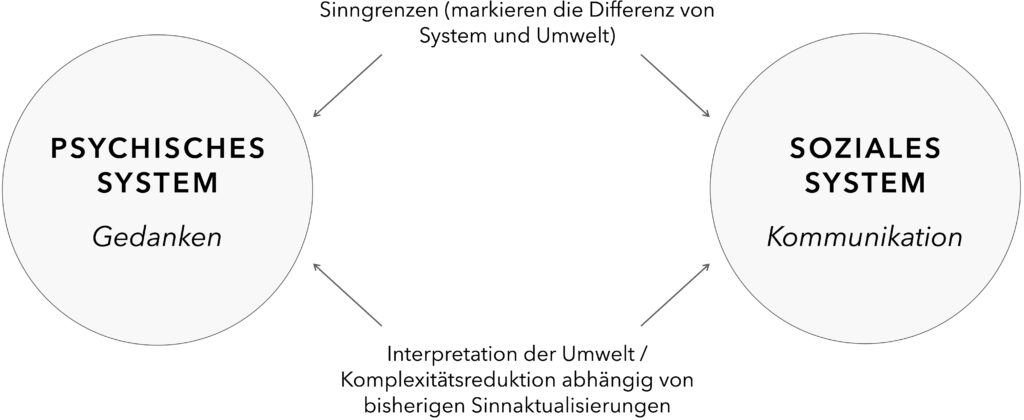18. Dezember 2018
In der Zeitschrift Information Research ist eine Rezension zu unserem Buch »Collectivity and Power on the Internet« erschienen:
The whole book is devoted to the investigation of collective social actors on the internet, their rise, specific features, means of acquiring and losing power on the internet, their role online and technology role in their activities, and the basis of continuing survival.
[…] Chapter 2 provides a basic typology of social actors involved in collective actions on the Internet, starting with spontaneously emerging short-term swarms or flash-crowds to institutionalized production-oriented communities. […] Chapter three critically examines the social movements and changes that the use of digital technology has brought to their activities.[…] Social media do not replace mass media or conventional forms of protest, but enhance the possibilities of networking and feedback beyond the scope of social movement or protest event.
[…] I have found very interesting the next chapter on open source communities, which exposes the loss of their disruptive edge and the new role in the strategy of innovation as incubators of new solutions. […] I liked the classification of the open sourse software projects in relation to two axes of corporate leverage and levels of coordination that helps understanding the variety of projects and initiatives in this field. The most impressive part […] is the discussion of the present state of the open source initiatives and the future potential of openness discourses for the economic and political fields.
The final chapter on the competition and power of the main Internet companies was both most interesting and probably least new to me. I appreciated the logic and the depth of the arguments that were employed to reveal the sources of power, the nature of competition, and the strategies leading to success of the five dominant internet companies. […]
7. Dezember 2018
Vor kurzem ist eine Rezension von Jan-Hinrik Schmidt zum Buch »Kollektivität und Macht im Internet« (Dolata & Schrape 2018) in der Zeitschrift Medien & Kommunikationswissenschaft erschienen (Rezension als Blogbeitrag):
»Die Lektüre […] lohnt sich meines Erachtens, weil sie in vielen Aspekten hochgradig anschlußfähig an kommunikationswissenschaftliche Theorien und Modelle sind. Die akteurstheoretischen Ausführungen des ersten Beitrags etwa lassen sich m.E. gut mit dem sozialkonstruktivistischen Konzept der kommunikativen Figuration von Hepp/Hasebrink (2017) verbinden, aber auch an die masse- und komplexitätstheoretischen Überlegungen von Neuberger (2017) oder Waldherr anknüpfen. Und die Ausführungen zur Macht von Plattformen und Informationsintermediären (einschließlich möglicher Alternativen) sind für alle hilfreich, die sich mit der Frage befassen, wie digitale Medien gegenwärtig Öffentlichkeit und Meinungsbildung wie auch alltägliche Sozialität prägen.«
4. Dezember 2018
Inzwischen ist der Artikel »Verteilte Innovationsprozesse« (Springerlink | Preprint) im projektierten Handbuch Innovationsforschung erschienen, der einen Überblick über die Konzepte der Collective Invention, User Innovation und Open Innovation gibt. Nachfolgend ein kurzer Einstieg:
Das Konzept der Open Innovation wurde durch den US-amerikanischen Wirtschaftswissenschaftler Henry W. Chesbrough eingeführt und bezeichnet die Öffnung vormals organisationsinterner Innovationsprozesse. Seine Popularität gründet zum einen auf dem Versprechen, Innovationsprozesse zu dezentralisieren und damit kostengünstiger sowie transparenter zu gestalten. Zum anderen bietet das Paradigma der Open Innovation eine mögliche Antwort auf die Frage, wie Unternehmen ihre Wettbewerbsfähigkeit in Wirtschaftssektoren absichern können, die – wie z.B. die internationale Softwareindustrie – durch sehr kurze Innovationszyklen gekennzeichnet sind. Dass Organisationen ihr Wissen auch außerhalb formaler Kooperationen miteinander teilen, ist allerdings ebenso wenig ein neues Phänomen wie der prägende Einfluss spezifischer Nutzergruppen, die zu der Weiterentwicklung von Produkten beitragen: Den unternehmerischen Wissensaustausch zu Beginn von Innovationsprozessen beschrieb bereits Robert C. Allen (1983) als Collective Invention; das Phänomen innovierender Anwender hat Eric von Hippel (1976) früh auf den Begriff der User Innovation gebracht.
Zum Artikel »
26. November 2018
Auf der STS Conference Graz 2019 organisiere ich eine Session zum Thema »Technology and the promise of decentralization« und freue mich auf Einreichungen, die entsprechende Erwartungen kontextualisierend in den Blick nehmen oder dahingehende empirische Fallstudien vorstellen:
From the very beginning, the social appropriation of the Internet has been accompanied by the promise of technology-driven decentralization […] Although none of these expectations, in all of their radicality, has yet to empirically redeem itself, their underlying premise for the future has proven to be astonishingly stable. […]
Against this backdrop, this session (a) traces the origins of the notion of decentralizing socio-economic forms of coordination through technological means and (b) discusses past and present ideas and attempts of decentralized and distributed economic systems. Submissions may include but are not limited to the following topics:
- Socio-historical reconstructions from the early do-it-yourself (DIY) scene of the 1960s, the computer counterculture of the 1970s and 1980s to the debates on cyberspace and Web 2.0 in the 1990s and 2000s;
- Empirical observations on present day concepts of decentralized economic structures (e.g., “Maker Economy”, “Collaborative Commons”) and presumably decentralizing technologies (e.g. Blockchain);
- Reflections on the basic patterns of arguments and communicative functions of technology-based promises of decentralization.
Zum Call for Abstracts »
19. November 2018
Der anwendungsorientierte Band »Co-Creation. Reshaping Business and Society in the Era of Bottom-up Economics« ist erschienen – darin auch mein kontextualisierender Beitrag »Understanding Open Source Software Communities«. Über den Band:
Across several industries, we are observing a paradigm shift from traditional, firm-centric and top-down value creation to more open and collaborative approaches, also referred to as bottom-up economics. The boundaries of firms dissolve and external actors (customers, user, suppliers etc.) enter the domain of value creation by means of advanced information and communication technologies. These new and evolving patterns require a renewed and interdisciplinary understanding of how co-creation enables organizations to reshape business and society.
With contributions from industrial and academic experts, this book provides deep insights into the theory and practice of bottom-up economics, and addresses the major opportunities and challenges that have emerged in the era of co-creation.
8. Oktober 2018
In den aktuellen Arbeits- und Industriesoziologischen Studien ist just der Beitrag »Algorithmische Arbeitskoordination in der plattformbasierten Gig Economy« von Jasmin Schreyer und mir erschienen, der im Kontext unseres Projekts zu digitalen Projektgemeinschaften entstanden ist. Aus dem Editorial:
Jasmin Schreyer und Jan-Felix Schrape (Universität Stuttgart) analysieren die algorithmische Arbeitskoordination im Kontext der Steuerung ortsgebundener Erwerbsarbeit über Crowdworking-Plattformen am Beispiel des Unternehmens Foodora. Als Grundlage hierfür arbeiten die AutorInnen zunächst allgemein die Organisationsprinzipien und Funktionsweisen von Online-Plattform-Unternehmen heraus. Die Vereinfachung von Arbeitsprozessen und Kommunikation, die Partizipation der Community und die Kontrolle durch Technik erweisen sich als Kernelemente der Arbeitsregulierung auf Plattformen. Die Analyse des Falles Foodora kommt zu dem Ergebnis, dass Vereinfachung und Kontrolle hier tatsächlich zentral sind, während Partizipation eher deklamatorischen Charakter hat.
Zum Artikel »
22. September 2018
Die Liste der Plenar-, Sektions-, Ad-Hoc- und Sonderveranstaltungen im Rahmen des 38. DGS-Kongresses in Göttingen (»Komplexe Dynamiken globaler und lokaler Entwicklungen«) ist lang und deckt mehr oder minder das gesamte Spektrum der soziologischen Forschung ab. Zu den Themen Digitalisierung und Innovation finden sich diesmal u.a. folgende Sessions im Programm:
Weiterlesen »














